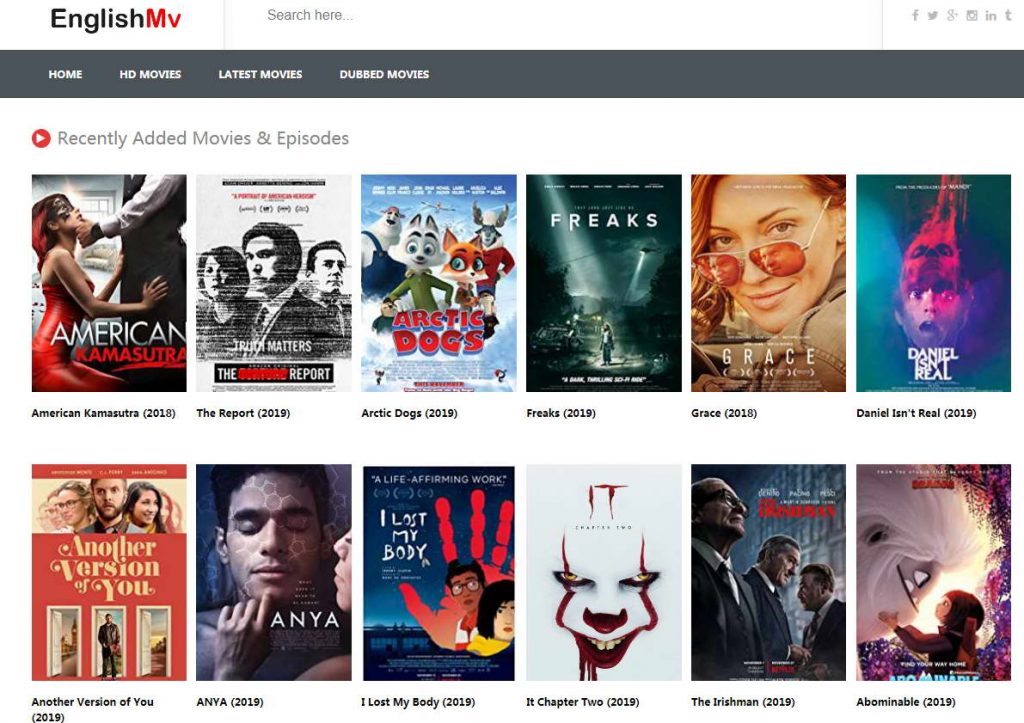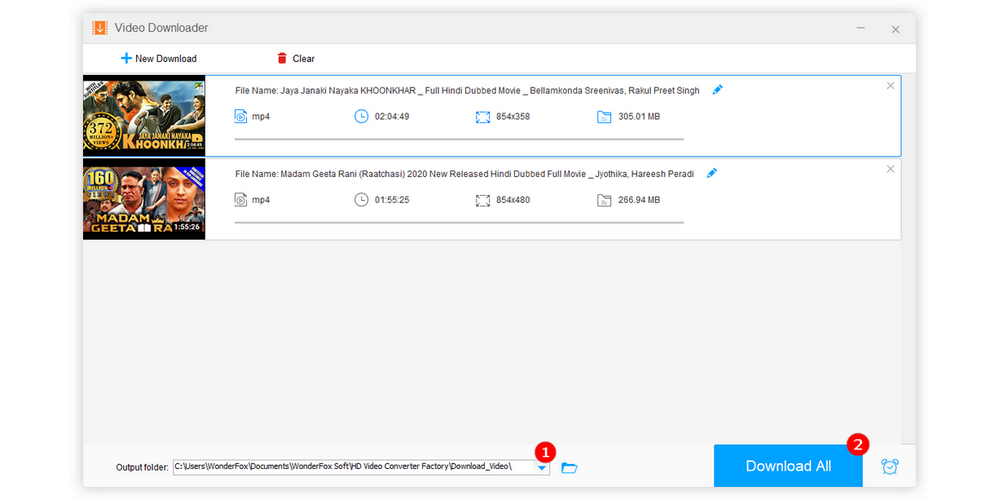Plex Media Server: Fixes & Tips For Your Movie Library Issues!
Ever found yourself wrestling with a digital labyrinth, where your painstakingly curated movie collection seems to vanish into the ether? The struggle to maintain a seamless media library is real, especially when dealing with the complexities of file formats, subtitles, and the ever-fickle nature of media server software.
The world of digital media can often feel like a high-stakes game of hide-and-seek. One moment, you're basking in the glory of your perfectly organized movie collection; the next, you're tearing your hair out, wondering why certain files refuse to show up in your Plex library. The frustration is compounded when you've spent hours meticulously ripping, tagging, and organizing your media, only to be met with a blank screen or a generic error message. This is a common plight, especially for those who delve into the realms of MKV files, external subtitles, and the nuances of media server configurations.
| Topic | Details |
|---|---|
| File Format | MKV (Matroska): A flexible container format that can hold video, audio, subtitles, and metadata. While versatile, it sometimes faces compatibility issues with certain devices and software. |
| MP4 (MPEG-4 Part 14): A widely supported format known for its compatibility across various platforms, including mobile devices, media players, and streaming services. | |
| Subtitle Handling | Embedded Subtitles: Subtitles that are integrated directly into the video file. These are generally easier to manage but can be more challenging to edit or extract. |
| External Subtitles (SRT): Separate subtitle files (usually in .srt format) that are linked to the video file. This allows for greater flexibility in terms of editing, language selection, and customization. | |
| Plex Media Server | Function: Organizes and streams your personal media library to various devices. It requires proper file naming and folder structure for accurate identification and metadata retrieval. |
| Common Issues: Files not appearing in the library, incorrect metadata, subtitle detection problems, and transcoding errors. | |
| Troubleshooting Tips | File Naming: Adhering to Plex's recommended naming conventions is crucial. For TV shows, this typically involves specifying the series name, season number, and episode number (e.g., Series Name - S01E01). For movies, simply the movie title and year (e.g., Movie Title (2023)). |
| Folder Structure: Organizing your media into well-defined folders (e.g., TV Shows/Series Name/Season XX, Movies/Movie Title) helps Plex identify and categorize your content. | |
| Metadata Agents: Plex uses metadata agents to fetch information about your media from online databases. Ensuring these agents are properly configured and prioritized can improve accuracy. | |
| Library Scanning: Regularly scanning your Plex library allows it to detect new files and update metadata. If files are not appearing, try refreshing the library or performing a deep scan. | |
| File Splitting & Joining | Purpose: Combining multiple video files that were originally ripped or downloaded as separate parts into a single, continuous file. |
| Tools: Software like MKVToolNix can be used to join MKV files seamlessly without re-encoding, preserving quality and saving time. | |
| Compatibility | Device Variation: Different devices (smart TVs, streaming sticks, mobile devices) have varying levels of compatibility with different video formats and codecs. MP4 generally offers broader compatibility. |
| Transcoding: Plex can transcode video files on the fly to make them compatible with the device being used for playback. However, transcoding can be resource-intensive and may impact performance. | |
| Reference: Plex Official Website |
The issue of files not appearing in Plex libraries is a tale as old as media servers themselves. Users frequently report adding new content, only to find that it remains stubbornly invisible to Plex, despite repeated scans and meticulous organization. This can stem from a variety of culprits, ranging from file naming inconsistencies to deeper issues with Plex's metadata agents. One common scenario involves movies or TV episodes split into multiple parts, where only the first part is recognized, leaving the others languishing in digital obscurity. For example, if you have files named "movie part 1" and "movie part 2" in the same folder, Plex might only display "movie part 1," effectively cutting your viewing experience in half.
- Mkvmoviespoint Your Guide To Latest Movies In 2023 Updated
- Jameliz More Discover Trending Adult Content Online Now
The complexities extend further when dealing with subtitles, particularly external SRT files. While Plex generally does a decent job of detecting and displaying subtitles, it's not uncommon for users to encounter situations where subtitles simply refuse to appear. This issue seems to disproportionately affect MKV files, while AVI and MP4 files often fare better. Even more perplexing is the fact that embedded subtitles within MKV files are typically detected without issue, leaving users scratching their heads as to why external SRT files are being ignored. This can be particularly frustrating for those who rely on subtitles for accessibility or language assistance.
Adding to the mix is the ever-present question of optimal file format. While MKV offers a high degree of flexibility and supports a wide range of codecs and features, it's not universally compatible. Many older devices and media players struggle to handle MKV files properly, leading to playback issues or outright failures. This is where MP4 enters the picture, offering broader compatibility at the expense of some of MKV's advanced features. The choice between MKV and MP4 often boils down to a trade-off between flexibility and compatibility, depending on the specific devices and software being used.
The process of converting MKV files to MP4 can be a daunting task, especially for those with extensive media libraries. However, with the right tools and techniques, it can be a relatively straightforward process. Software like FFmpeg allows for direct copying of video and audio streams, minimizing quality loss and speeding up the conversion process. It's also possible to extract SRT subtitles from MKV files and embed them into the MP4 container, ensuring that subtitles are always available, regardless of the playback device.
- Aditi Mistry Nip Slip Controversy Truth Behind The Video
- Kannada Movies 2025 Movierulz Legal Options What To Know
However, even after converting files and meticulously organizing your library, you might still encounter issues with Plex's metadata detection. It's not uncommon for Plex to fail to recognize newly converted files, even if they have been properly named and organized. This can be particularly frustrating if Plex already has information about the movie from a previous scan. In such cases, it might be necessary to manually refresh the library or even delete the movie from Plex's database and re-add it to force a re-scan.
For those managing Plex servers shared by a large number of users with diverse devices, the question of optimal file format becomes even more critical. In such scenarios, compatibility reigns supreme, making MP4 the preferred choice. While MKV might offer some advantages in terms of features and flexibility, its lack of universal compatibility can lead to playback issues for a significant portion of users. By prioritizing MP4, administrators can ensure a smoother and more consistent viewing experience for everyone.
When dealing with TV shows, proper naming and folder structure are paramount. Plex relies heavily on these cues to identify and categorize episodes correctly. For instance, if you're adding episodes of "BBC Horizon," you should create a "Season 2008" subfolder and name the files according to the season and episode number (e.g., "BBC Horizon - S2008E01"). Similarly, for shows like "Wonders of Life," you should create a "Season 01" subfolder and name the files accordingly (e.g., "Wonders of Life - S01E01").
Another common issue arises when dealing with movies that have been ripped or downloaded as multiple files. This often happens with very long movies that are split into two or more parts. To ensure seamless playback, these files need to be joined together into a single, continuous file. Tools like MKVToolNix can be used to accomplish this without re-encoding, preserving the original quality of the video and audio.
Many users have reported problems with MKV files not showing up in their Plex libraries after scanning. This issue is often attributed to similar file names, especially when a movie or TV episode is split into several parts. For example, if you have files named "movie part 1" and "movie part 2," Plex might only recognize "movie part 1." To avoid this, it's crucial to rename the files in a way that clearly distinguishes them or, preferably, join them into a single file.
Some users have encountered situations where newly added movies don't appear in their Plex library, even after performing a library scan. In such cases, the scan might complete quickly without detecting the new files. This can be caused by a variety of factors, including incorrect file permissions, network issues, or problems with Plex's database. It's important to ensure that Plex has the necessary permissions to access the files and that your network connection is stable.
Subtitle issues are another common source of frustration for Plex users. Many have reported that external SRT subtitles are not being detected by Plex, even when they are properly named and located in the same folder as the video file. This issue seems to be more prevalent with MKV files than with AVI or MP4 files. One workaround is to embed the subtitles directly into the MKV file using tools like MKVToolNix.
Chapter markers are also an important consideration, especially for Blu-ray rips. Some rips are created without chapter markers, making it difficult to navigate through the movie. To address this, you can use tools like MKVToolNix to add chapter markers to the MKV file, improving the overall viewing experience.
The choice of file format is a crucial decision, especially for Plex servers that are shared by hundreds of users. While MKV offers certain advantages, its compatibility issues can lead to problems for some users. MP4, on the other hand, offers broader compatibility, making it a safer choice for shared servers. Ultimately, the best file format depends on the specific needs and constraints of your environment.
It's worth noting that some video players, such as Movies & TV app, Windows Media Player, and Media Player Classic, don't work well with MKV files. This can be a significant drawback for users who rely on these players. In such cases, converting MKV files to MP4 might be necessary to ensure compatibility.
Several solutions are available for addressing these issues. One approach is to convert MKV movies to MP4 using FFmpeg, which allows for direct copying of video and audio streams. Another option is to extract SRT subtitles from MKV files and embed them into the MP4 container. These steps can help improve compatibility and ensure that subtitles are always available.
Users have also reported problems with Plex failing to update the video format after converting files. If Plex already has information about the movie, it might not detect the SRT files for the MP4 file, even after deleting the original MKV file. In such cases, it might be necessary to manually refresh the library or even clear Plex's cache to force a re-scan.
For users of Netgear ReadyNAS devices, it's important to ensure that you're using the latest version of the Plex Media Server software. Similarly, for Windows 11 users, keeping your system up-to-date can help resolve compatibility issues and improve performance.
One user reported having trouble adding the movie "The 33" to their Plex library on a second NAS device, even though it was already added to their library on the first NAS. This issue might be caused by differences in file permissions or network configurations between the two NAS devices. It's important to ensure that Plex has the necessary permissions to access the files on both NAS devices.
In summary, managing a Plex media library can be a complex and challenging task, especially when dealing with MKV files, external subtitles, and diverse playback devices. By following best practices for file naming, folder structure, and library scanning, you can minimize these issues and ensure a smooth and enjoyable viewing experience for yourself and your users.
Remember to keep visiting for reliable and secure updates on your favorite movies and content!
About mkvmoviespoint mkvmoviespoint is a popular platform offering a wide range of movies and TV shows for download. The service is compatible with all iOS and Android devices, Roku, Apple TV, Amazon, and even Xbox.
5 movies is a free movie streaming service that allows you to watch movies without signing up on the website.
Convert downloaded movie to mkv format. Once the movie is downloaded successfully, go back to the main interface, choose converter, and now, we convert the downloaded movie to the mkv format. Import the movie via add files, click on the output format area on the right and select mkv format under the video tab.
MX Player offers a wide variety of domestic and international movies and TV shows to choose from spread across genres such as comedy, romance, drama, action, suspense, and thriller. MX Player is currently available in 11 different languages including English, Hindi, Kannada, Gujarati, Tamil, Marathi, and Malayalam to name a few.
- Bollyflix Your Ultimate Bollywood Entertainment Destination Guide
- Jameliz More Discover Trending Adult Content Online Now

How to download Hollywood MKV movies? Leawo Tutorial Center

MKVMovies Download Your Ultimate Guide To Legal Movie Streaming And

Top Picks Best MKV Movies Download Sites For Effortless Viewing